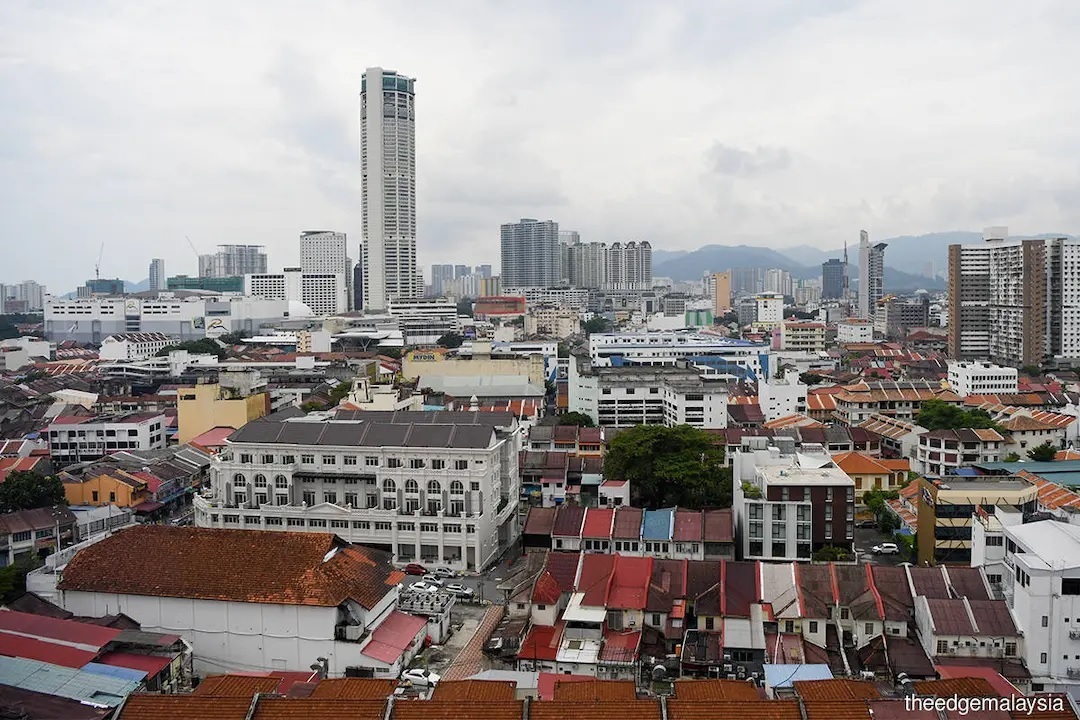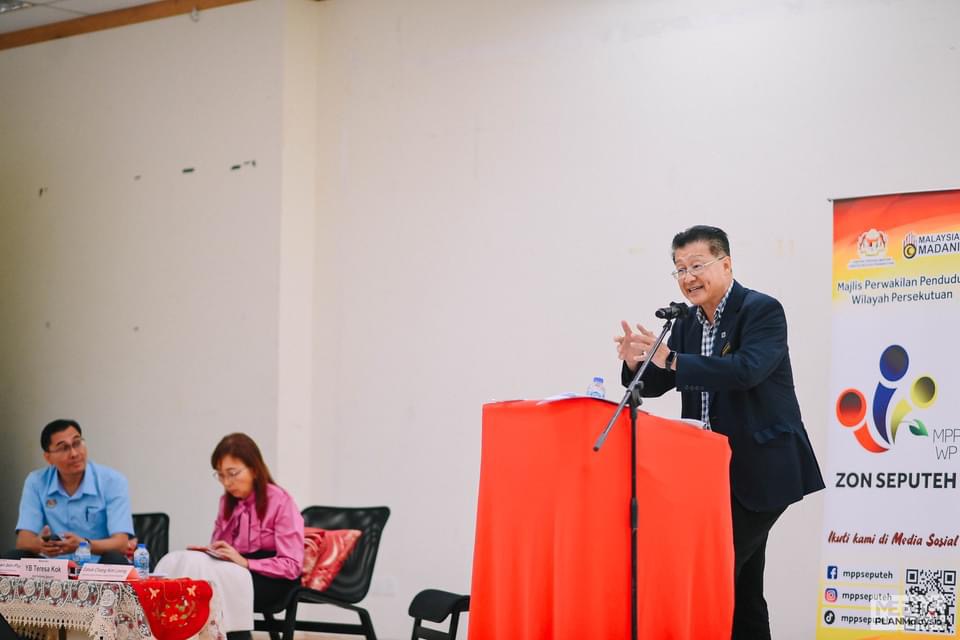Redevelopment can be helmed by owners themselves without URA’s decree

- Homeowners should have the freedom to decide on how to redevelop their housing schemes through "self-help" initiatives without being bound by the proposed draconian Urban Redevelopment Act.
The National House Buyers Association (HBA) has written numerous articles on the repercussion, ramifications and possible ills of the Urban Redevelopment Act (URA) proposed by the Ministry of Housing and Local Government (KPKT), which is considering a consent threshold as low as 75%.
(Read: Urban Redevelopment Act forum: Don’t wage war between ‘sell’ and ‘stay’ homeowners)
Under the proposed legislation, the rights and might of the majority and third parties seem to override that of the minority and encroach upon the constitutional right of each owner.
Era of ‘Government knows best’ is over
HBA opines there is no need for a URA legislation, which would simply be opening another can of worms, as KPKT is still not up to the mark in resolving the spate of “late, sick” and worst of all “abandoned” housing projects.
(Read: Urban Renewal Act: Is KPKT biting more than it can chew?
Abandoned housing projects – will the special task force be effective this time?)
Secondly, we currently have sufficient laws for any redevelopment, rejuvenation, renewal or refurbishment or call it by whatever name.
(Read: Why need new urban redevelopment law when a list of existing laws are in place for the purpose?)
Instead, homeowners should have the freedom to decide on how to redevelop their housing schemes, if needed.
It is possible for the owners to exercise “self-help” initiatives without requiring a new draconian URA law that divides them into dissenting groups of 75% versus 25%.

Of course, the self-help initiatives would require collaboration, legal frameworks, and careful planning among owners and their own-sourced property developers/building contractors. The key to success would lie in proactive communication, understanding the market, and aligning the redevelopment goals with broader urban planning objectives.
Provide seed money to kick-start
Instead of spending valuable resources on executing the URA, the Government could set aside an allocation for the owners’ self-help initiative, not unlike the National Higher Education Fund Corporation (PTPTN). Under the scheme, the owners themselves, through their respective representative bodies (residents’ association (RA) or management corporations (MCs)) could apply for “seed money”, say RM200,000, to engage professionals, planners, architects, surveyors, consultants or project managements to undertake the planning, scheduling, costing and viability process. They can then have a working paper to call for open tenders for redevelopment.
This way, the owners themselves can choose the best tenderer with the most innovative designs for the best deals. The owners know best what they want.
The proposed seed money should be an interest-free loan to be paid back to the Government when the redevelopment is successfully completed. Certainly, there will be a number of concerns on the management of money matters, but these could be fine-tuned further.
Self-help initiatives
In contrast to the URA’s legal framework that typically requires coordination with urban authorities and following certain procedures for land use and development, the self-help initiative would allow property owners to initiate the urban redevelopment process independently without directly relying on the complex URA legislation.
Here are several self-help strategies that could facilitate this:
1. Driven by registered management bodies
The redevelopment efforts should be collectively managed and driven by a formal owners’ association or cooperative group such as the RA or MC. This group could coordinate on issues like property value assessment, collective sale and negotiations with developers or building contractors. A clear governance structure with representatives from different stakeholders ensures more effective decision-making.
2. Collective sale agreements
A collective sale (also known as “en bloc” sale) is a process where a group of property owners agrees to sell their individual properties to a developer for redevelopment purposes. Owners could initiate discussions with developers, and once a unanimous consent is obtained from owners through voting, move forward with the sale process, even without direct involvement from the URA. However, do note that independent legal counsel is crucial to draw up agreements that ensure fair treatment for all owners.
3. Negotiation with local authorities
Although the proposed URA is supposed to regulate major urban redevelopments, owners can engage with local authorities such as the local municipal council or town planning department to discuss zoning changes, land use or planning permissions. A proactive discussion might allow for some level of redevelopment outside the strict URA framework, such as rejuvenation of smaller buildings or plots, or adaptive reuse of existing infrastructure.
4. Planning and feasibility studies
Owners can commission their own feasibility and viability studies and urban planning assessments to understand what kind of redevelopment is possible or desirable. These studies can include market assessments, environmental impact reports, and legal due diligence, helping owners make informed decisions without relying on URA-led processes.
5. Engagement with developers or private investors
If the owners unanimously agree on a redevelopment strategy, they can independently approach private developers, building contractors or investors to explore options for redevelopment. Property developers and building contractors may be more willing to enter into partnerships if all owners of the property are already secured, reducing the need for government intervention.
Owners can enter into joint ventures (JVs) with property developers or building contractors where they partner to redevelop the property. This can involve:
- Owners contributing the land or property, and the developer handling the redevelopment and construction
- Profits or new units to be shared according to the terms of the JV
- Owners studying the gross development value themselves and perhaps working out more than one unit in exchange
- Agreeing on a clear legal framework to ensure fair compensation and terms for all parties involved
6. Legal structuring and agreements
To bypass some of the more cumbersome aspects of the URA legislation, property owners may choose to structure their properties under legal frameworks such as JVs or special-purpose vehicles, where the group collectively owns and manages the redevelopment. Proper independent legal counsel is critical to ensure the owners are protected, and the process aligns with relevant local laws and building codes.
7. Public-private partnerships (PPPs)
Owners may consider PPPs, where they work directly with private developers, possibly leveraging public infrastructure initiatives, to revitalise or redevelop their area. Local governments may be open to facilitating such initiatives if they align with broader urban development goals.
8. Private initiatives for infrastructure improvement
Owners can work together to improve the infrastructure or common facilities of their properties, such as upgrading plumbing, electrical systems, or creating more sustainable living spaces. Passenger lifts may be installed conjointly with existing staircases. This type of redevelopment can increase property value and attract potential buyers or tenants, without changing existing laws.
9. Property management and upgrading schemes
Owners can adopt self-help initiatives like appointing a licensed property management company that handles the maintenance, upgrading and renovation of the building or estate.
Examples include:
- Regular building retrofits or adding modern amenities (like energy-efficient systems, better insulation, or smart home features)
- Organising funds for collective upgrades, like roof repairs, structural enhancements, or facade improvements
10. Conservation and adaptive reuse
If the property has historical or architectural value, owners could explore adaptive reuse, where the building is repurposed for modern uses while maintaining its original structure. This is particularly applicable for older buildings, where the focus is on preserving heritage while redeveloping the interior or function.
11. Green and sustainable development
Owners can explore eco-friendly redevelopment options, including implementing green building standards or sustainable architecture such as solar panels, rainwater harvesting or green roofs. With growing demand for environmentally-conscious living, these initiatives can increase property value and appeal without the need for legislative changes.
12. Community engagement and advocacy
Building community consensus and understanding among property owners is key to ensuring a smooth redevelopment process.
13. Community-led redevelopment
In some cases, a redevelopment can be initiated and led by the community of property owners, particularly in neighbourhoods where there is a strong sense of ownership and a collective vision for the future. This can involve owners coming together to form a local redevelopment initiative, which may focus on community needs and desires, such as improving infrastructure, adding amenities, or enhancing the aesthetic quality of their environment, with minimal formal regulation.
14. PLAN MALAYSIA and government agencies to be advisory board
Advocacy, town halls and community meetings can help gather support and ensure all owners understand the potential benefits and challenges of redevelopment, reducing the need for external regulation or intervention.
Careful planning necessary
Each of these approaches requires careful planning and collaboration, as well as consideration of financial, legal and practical implications. It’s also important to understand that in many cases, some form of coordination with local authorities may still be necessary for zoning, planning approval, or infrastructure integration
However, these self-help initiatives can help owners achieve redevelopment goals without being subject to the complex regulatory frameworks typically associated with URA laws.
If all the owners themselves are empowered to decide on redevelopment, collating a unanimous consent of 100% is not impossible, as proven by the case studies in 1Razak Mansion in Sungei Besi, Kuala Lumpur and two other housing projects in Shah Alam, Selangor initiated by the Selangor State Development Corporation (PKNS).
Datuk Chang Kim Loong is the Hon Secretary-general of the National House Buyers Association (HBA).
HBA can be contacted at:
Email: [email protected]
Website: www.hba.org.my
Tel: +6012 334 5676
The views expressed are the writer’s and do not necessarily reflect EdgeProp’s.
Looking to buy a home? Sign up for EdgeProp START and get exclusive rewards and vouchers for ANY home purchase in Malaysia (primary or subsale)!
Follow Us
Follow our channels to receive property news updates 24/7 round the clock.
Telegram

Latest publications
Malaysia's Most
Loved Property App
The only property app you need. More than 200,000 sale/rent listings and daily property news.
